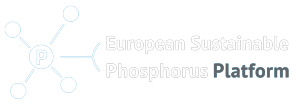The Commission recognises the EU’s dependency on imports for fertilisers, impacting farmers’ costs and food insecurity, and the strategic need for organic fertilisers, green ammonia and nutrient recycling, alongside sustainable and precision farming, to improve nutrient use efficiency and reduce losses.
Actions announced include:
- Use CAP (Common Agriculture Policy) Member State Strategic Plans to support efficient and sustainable fertiliser use whilst preventing nutrient losses, including rollout of the FaST tool (Farm Sustainability Tool for Nutrients): “CAP Strategic Plans support partial replacements of mineral fertilisers by organic fertilisers like manure, sewage sludge and biowaste, from methanisation processes or biological and thermal treatments, while ensuring that this does not result in higher nutrient losses”
- Organic and recycled fertilisers: “Better access to organic fertilisers and nutrients from recycled waste-streams, especially in regions with a low usage of organic fertilisers”
- Support for Green Ammonia (from renewable energies, not from natural gas)
ESPP welcomes the recognition of the importance of organic and recycled fertilisers, as well as improving fertiliser use and calls for strong EU action to support these be included in the Integrated Nutrient Management Action Plan under preparation for 2023. ESPP underlines that the nitrogen, phosphorus and potassium present in organic waste streams (manure, sewage biosolids, food wastes, animal by-products) are in total significantly greater that used in mineral fertilisers, and potential for increasing recycling is considerable.
The European fertilisers industry (Fertilizers Europe, 9th November 2022) has underlined the need to optimise nutrient use, in particular with the EU FaST tool and precision fertiliser practices, and called for “measures to support the transition to a low-carbon fertilizer industry”.
ESPP welcomes the possibility to require nutrient recycling in the proposed revision of the EU Urban Waste Water Treatment Directive (published 26th October 2022) and calls for this requirement to be rapidly implemented. This should also be included in the Sewage Sludge Directive revision underway. Germany and Switzerland already have regulatory phosphorus recycling obligations; and now also Austria.
ESPP notes the recognition in the Communication of the importance of the EU Fertilising Products Regulation 2019/1009 to open the market for recovered fertilisers and for “Specialty EU fertilising products such as inhibited fertilisers, controlled release fertilisers and plant biostimulants”. ESPP calls to accelerate removal of legal obstacles to recycling of nutrients from animal by-products (ABP), where these are confirmed to be safe, such as Cat.1 ABP incineration ash. We call on the Commission to mandate rapidly EFSA (European Food Safety Agency) to assess the safety of these materials.
ESPP welcomes the announced aim of improving fertiliser use of manure and processed manure in compliance with the Nitrates Directive. ESPP notes the Commission’s clarification that proposed JRC “RENURE” processed manure materials (see ESPP eNews n°47) with potential ammonia emissions should continue to be subject to strict Nitrates Directive application requirements. ESPP underlines that it should be recognised that mineral fertilisers recovered from manure do not have ammonia emission or leaching risks different from fossil-derived mineral fertilisers, and should not be considered as “processed manure” (similarly for biomass grown using manure as a substrate), see ESPP eNews n°71.
The Nutrient Circular Economy, increasing nutrient recycling and organic fertilisers, alongside Nutrient Use Efficiency and green ammonia, are the only way out of EU import dependency for fertilisers, and so are critical to ensure food security, farmer livelihoods and to limit food inflation.
ESPP calls for clear regulatory actions and fiscal or market incentives to support nutrient recycling in the upcoming Integrated Nutrient Management Action Plan.
2nd European Summit of the Organic Fertilisers Industry in Europe (SOFIE), 17-18 January 2023, Brussels and online www.phosphorusplatform.eu/SOFIE2023
European Commission Communication “Ensuring availability and affordability of fertilisers”, COM(2022) 590, 9th November 2022 here and press release / Q&A / summary here.
